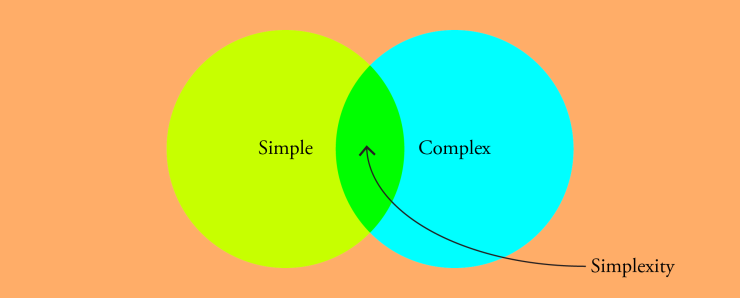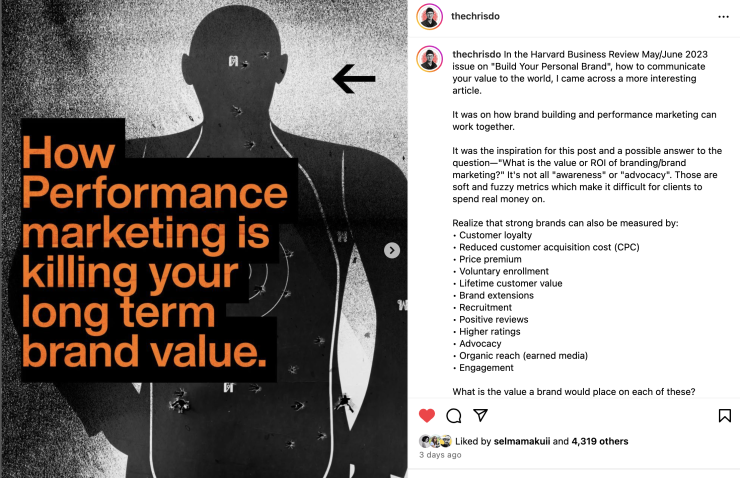
Leaving Performance Metrics Behind: The Evolution of Brand Strategy
A paradigm shift is underway. The reliance on performance marketing is making way for a more deliberate and strategic approach to brand communication. As businesses grapple with challenges such as pressures on discretionary spend and the expansion of customer preferences, the need for compelling brand storytelling has become more crucial than ever. This transition is not just a reaction to the rising costs of performance marketing and data privacy regulations; it's a proactive response to the changing dynamics of the business landscape and the evolving expectations of customers. It's the desire to have a purpose beyond the clicks.
The decision to reprioritize brand strategy communications budgets signifies a fundamental transformation for many businesses, especially those that have long depended on the trackable and targeted nature of performance marketing. This strategic shift is not merely an adjustment to new circumstances; it's a recognition of the evolving nature of business and a proactive adaptation to meet the changing needs and expectations of customers and end-users.
While performance marketing offers instant trackable insights, the constraints imposed by escalating costs and privacy regulations have led businesses to explore the untapped potential of brand communication. Brand communication, though not providing the instant gratification of trackable insights, brings forth its own array of unique advantages. When executed effectively, brand strategy allows businesses to carve out a distinctive identity in an increasingly saturated media landscape.
A Mess of Metrics
In today's marketing landscape, the reliance on metrics can often obscure the bigger picture and lead brands astray. While metrics provide valuable insights into various aspects of performance, they don't always offer a comprehensive understanding of a brand's impact or resonance. In the pursuit of quantifiable results, brands may find themselves fixated on metrics that only scratch the surface of their effectiveness. This tunnel vision can be misleading, as it overlooks the qualitative aspects of brand communication that are equally, if not more, critical. Metrics like clicks and conversions, while important, don't capture the nuances of customer sentiment, brand loyalty, or long-term brand equity. Consequently, brands risk allocating resources based on misleading indicators, chasing ephemeral success rather than focusing on building enduring connections with their audience. Thus, it's imperative for brands to adopt a more holistic approach that values both quantitative metrics and qualitative insights, ensuring a more accurate assessment of performance and a strategic focus on what truly matters in fostering brand success.
One of the primary benefits of a strategic brand communication approach is its ability to transcend the mere promotion of products and services. Instead, it delves into the realm of captivating brand development that resonates with the aspirations and interests of customers. This deeper connection goes beyond the transactional nature of performance marketing, fostering a more profound and enduring relationship between the brand and its audience. Clicks and metrics have their place, but we’re finding that they’re not enough to create long-term success.
The significance of brand communication becomes even more apparent in its role in transforming a business's market position. Beyond immediate gains, thoughtful brand communication contributes to long-term sustainability and growth. It enables businesses to differentiate themselves from competitors, creating a unique value proposition that extends beyond the tangible features of their products or services.
Values, Personality and Purpose
Brand communication has proven to be instrumental in expanding customer bases. By connecting with consumers on a more emotional and aspirational level, businesses can attract entirely new audiences. This is a stark contrast to the narrow targeting constraints often associated with performance marketing, which may limit the potential for reaching untapped markets.
As businesses embrace the shift from the immediate gratification of performance marketing to the enduring impact of thoughtful brand communication, they open themselves up to new opportunities for innovation and growth. By prioritizing brand communication, businesses can not only stand out in the competitive market but also build meaningful connections that resonate with consumers on a deeper level.
The expanded focus on brand communication prompts businesses to adopt a holistic approach, considering every touchpoint where the brand interacts with its audience. This includes not only traditional advertising channels but also social media, content marketing, and community engagement. The goal is to create a cohesive and authentic brand narrative that consistently communicates the values, personality, and purpose of the business.

This difference in planned spending reflects a broader recognition within the business landscape that the traditional focus on immediate and trackable returns from performance marketing may not be as sustainable or effective in the current environment. As businesses grapple with challenges such as rising costs and stringent data privacy regulations affecting the feasibility of targeted performance marketing, there is a growing acknowledgment of the need to explore alternative avenues for engaging with consumers.
The decision of a substantial majority of executives to boost investments in brand marketing signals a strategic realignment towards building a more enduring and resonant brand presence. Unlike performance marketing, which tends to be transactional and focused on short-term gains, brand marketing is seen as a vehicle for creating lasting connections and emotional resonance with the target audience.
Killing Your Brand
The survey results also suggest that businesses are placing a premium on the long-term benefits associated with brand development. This includes the ability to differentiate the brand in a crowded market, establish a unique identity, and foster loyalty among customers and staff alike. The recognition that brand marketing goes beyond immediate metrics to contribute to the overall market position and sustained growth of a business is a testament to a more strategic approach.
We're not the only ones noticing, either. Chris Do (Instagram @theChrisDo) recently published a post noting similar trends across from different types brand marketing, including influencer branding. In his post, Chris points out that there are better ways to measure the impact, value and long-term results of thoughtful brand marketing. The post offers a list of more meaningful ways to determine and maintain long-term brand value.
• Customer loyalty
• Reduced customer acquisition cost (CPC)
• Price premium
• Voluntary enrollment
• Lifetime customer value
• Brand extensions
• Recruitment
• Positive reviews
• Higher ratings
• Advocacy
• Organic reach (earned media)
• Engagement
In the Harvard Business Review article How Brands and Influencers Can Make the Most of the Relationship, which was the inspiration for the Instagram post. HBR staff writers share findings from a team of Harvard Business School researchers. "The research raises concerns about the sustainability of influencer marketing over the long term,” Shunyuan Zhang concludes. “This form of marketing depends on influencers’ reputations, so if brand sponsorships hurt those, it’s an open question how strongly companies can continue to profit from the tactic.”
It's essential to consider the implications of this shift not only in terms of budget allocation but also in the broader context of evolving consumer preferences. The increasing appetite among consumers for authentic brand experiences and meaningful connections further validates the strategic significance of brand marketing. As businesses aim to capture the aspirations and interests of their audience, the shift towards brand marketing aligns with the evolving dynamics of consumer behavior in a digitally connected and socially conscious era.
The McKinsey survey findings highlight a notable divergence in the marketing strategies of businesses, with a substantial majority opting to invest more in brand marketing compared to performance marketing. This shift reflects a strategic response to the challenges posed by the changing marketing landscape, indicating a recognition that building a strong brand presence is not only a response to current challenges but a forward-looking investment in long-term success and relevance.
The changing landscape of business marketing demands a shift from the immediate and often incomplete results of performance marketing to the lasting impact of thoughtful brand strategy and communication. As businesses face challenges such as increased costs and privacy regulations, embracing this strategic shift becomes not only a necessity but an opportunity for innovation and growth. By prioritizing brand communication, businesses can stand out, build meaningful connections, and position themselves for long-term success in towards identifiable results instead of chasing metrics and performance data.
Brand Solutions




